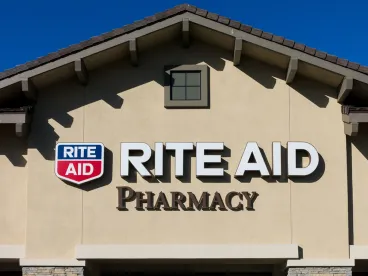In an effort to counteract rising prescription drug costs and health insurance premiums, New York Governor Hochul signed S3762/A1396 (the Act) on December 31, 2021. This legislation specifies the registration, licensure, and reporting requirements of pharmacy benefit managers (PBMs) operating in New York. The Superintendent of the Department of Financial Services (Superintendent) will oversee the implementation of this legislation and the ongoing registration and licensure of PBMs in New York. Notably, this legislation establishes a duty of accountability and transparency that PBMs owe in the performance of pharmacy benefit management services.
Though the Governor only recently signed the Act, on January 13, 2022, an additional piece of legislation, S7837/A8388, was introduced in the New York Legislature. If passed, this legislation would amend and repeal certain provisions proposed in the Act. As of the date of this blog post, both the Senate and Assembly have passed S7837/A8388, and it has been delivered to the Governor for signature. Anticipating that Governor Hochul will sign S7837/A8388 into law, we have provided an overview of the Act, taking into account the impact that S7837/A8388 will have, and the changes that both make to the New York State Insurance, Public Health, and Finance Laws.
New York State Insurance Law: Article 29 – Pharmacy Benefit Managers
The Act adds Article 29 to the Insurance Law. The Section includes, among other provisions, definitions applicable to PBMs, as well as licensure, registration, and reporting requirements, as detailed below.
Definitions
Section 2901 incorporates the definitions of “pharmacy benefit manager” and “pharmacy benefit management services” of Section 280-a of the Public Health Law. “Pharmacy benefit management services” is defined as “the management or administration of prescription drug benefits for a health plan.” This definition applies regardless of whether the PBM conducts the administration or management directly or indirectly and regardless of whether the PBM and health plan are associated or related. “Pharmacy benefit management services” also includes the procurement of prescription drugs to be dispensed to patients, or the administration or management of prescription drug benefits, including but not limited to:
-
Mail service pharmacy;
-
Claims processing, retail network management, or payment of claims to pharmacies for dispensing prescription drugs;
-
Clinical or other formulary or preferred drug list development or management;
-
Negotiation or administration of rebates, discounts, payment differentials, or other incentives, for the inclusion of particular prescription drugs in a particular category or to promote the purchase of particular prescription drugs;
-
Patient compliance, therapeutic intervention, or generic substitution programs;
-
Disease management;
-
Drug utilization review or prior authorization;
-
Adjudication of appeals or grievances related to prescription drug coverage;
-
Contracting with network pharmacies; and
-
Controlling the cost of covered prescription drugs.
A “pharmacy benefit manager” is defined as any entity that performs the above listed management services for a health plan. Finally, the term “health plan” is amended to encompass entities that a PBM either provides management services for and is a health benefit plan or reimburses, in whole or in part, at least prescription drugs, for a “substantial number of beneficiaries” that work in New York. The Superintendent has the discretion to interpret the phrase “substantial number of beneficiaries.”
Registration Requirements
PBMs currently providing pharmacy benefit management services must register and submit an annual registration fee of $4,000 to the Department of Financial Services (DFS) on or before June 1, 2022 if the PBM intends to continue providing management services after that date. After June 1, 2022, every PBM seeking to engage in management services must register and submit the annual registration fee to DFS prior to engaging in management services. Regardless of when a PBM registers, every PBM registration will expire on December 31, 2023.
Reporting Requirements
On or before July 1 of each year, each PBM must report and affirm the following to the Superintendent, which includes, but is not limited to:
-
Any pricing discounts, rebates of any kind, inflationary payments, credits, clawbacks, fees, grants, chargebacks, reimbursement, other financial or other reimbursements, inducements, refunds or other benefits received by the PBM; and
-
The terms and conditions of any contract or arrangement, including other financial or other reimbursement incentives, inducements, or refunds between the PBM and any other party relating to management services provided to a health plan including, but not limited to, dispending fees paid to pharmacies.
The Superintendent may request additional information from PBMs and their respective officers and directors. Notably, the above documentation and information are confidential and not subject to public disclosure, unless a court order compels it or if the Superintendent determines disclosure is in the public’s best interest.
Licensing Requirements
The Superintendent is also responsible for establishing standards related to PBM licensure. The Superintendent must consult with the Commissioner of Health while developing the standards. The standards must address prerequisites for the issuance of a PBM license and detail how a PBM license must be maintained. The standards will cover, at a minimum, the following topics:
-
Conflicts of interest between PBMs and health plans or insurers;
-
Deceptive practices in connection with the performance of management services;
-
Anti-competitive practices connected to the performance of management services;
-
Unfair claims practices in connection with the performance of pharmacy benefit managements services;
-
Pricing models that PBMs use both for their services and for payment of services;
-
Consumer protection; and
-
Standards and practices used while creating pharmacy networks and while contracting with network pharmacies and other providers and in contracting with network pharmacies and other providers. This will also cover the promotion of patient access, the use of independent and community pharmacies, and the minimization of excessive concentration and vertical integration of markets.
To obtain a license, PBMs must file an application and pay a licensing fee of $8,000 to the Superintendent for each year that the license will be valid. The license will expire 36 months after its issuance, and a PBM can renew their license for another 36-month period by refiling an application with the Superintendent.
New York State Public Health Law: Amendments to Section 280-a
Duty, Accountability, and Transparency of PBMs
As briefly mentioned above, the Act also amends Public Health Law 280-a. Notably, this legislation imposes imposes new duty, accountability, and transparency requirements on PBMs. Under the new law, PBMs interacting with a covered individual have the same duty to a covered individual as the PBM has to the health plan for which the PBM is performing management services. PBMs are also compelled to act with a duty of good faith and fair dealing towards all parties, including, but not limited to, covered individuals and pharmacies. In addition, PBMs are required to hold all funds received from providing management services in trust. The PBMs can only utilize the funds in accordance with its contract with their respective health plan.
To promote transparency, PBMs shall account to their health plan any pricing discounts, rebates, clawbacks, fees, or other benefits it has received. The health plan must have access to all of the PBMs’ financial information related to the management services the PBM provides it. The PBMs are also required to disclose in writing any conflicts of interest PBMs shall disclose in writing any conflicts of interests, as well as disclose the terms and conditions of any contract related to the PBM’s provision of management services to the health plan, including, but not limited to, the dispensing fees paid to pharmacies.
New York State Finance Law: Addition of Section § 99-oo
If enacted, S7837/A8388 will add Section 99-oo to the Finance Law. This law would create a special fund called the Pharmacy Benefit Manager Regulatory Fund (Fund). The New York State Comptroller (Comptroller) and Commissioner of Tax and Finance will establish the Fund and hold joint custody over it. The Fund will primarily consist of money collected through fees and penalties imposed under the Insurance Law. The Comptroller must keep Fund monies separate from other funds, and the money shall remain in the Fund unless a statute or appropriation directs its release.
Looking Forward: PBM Regulation in New York and Beyond
In a January 2, 2022, press release, Governor Hochul touted the Act as “the most comprehensive [PBM] regulatory framework” in the United States. The Governor has made clear her intent to regulate PBMs, and New York lawmakers appear to just be getting started. PBMs in New York and throughout the United States should anticipate their state’s legislatures introducing and enacting more laws and regulations.





 />i
/>i
